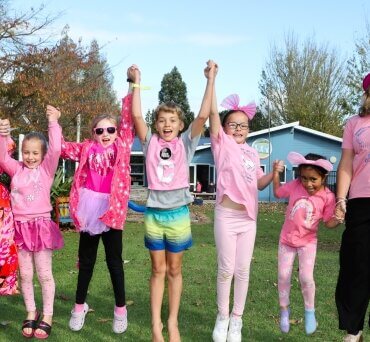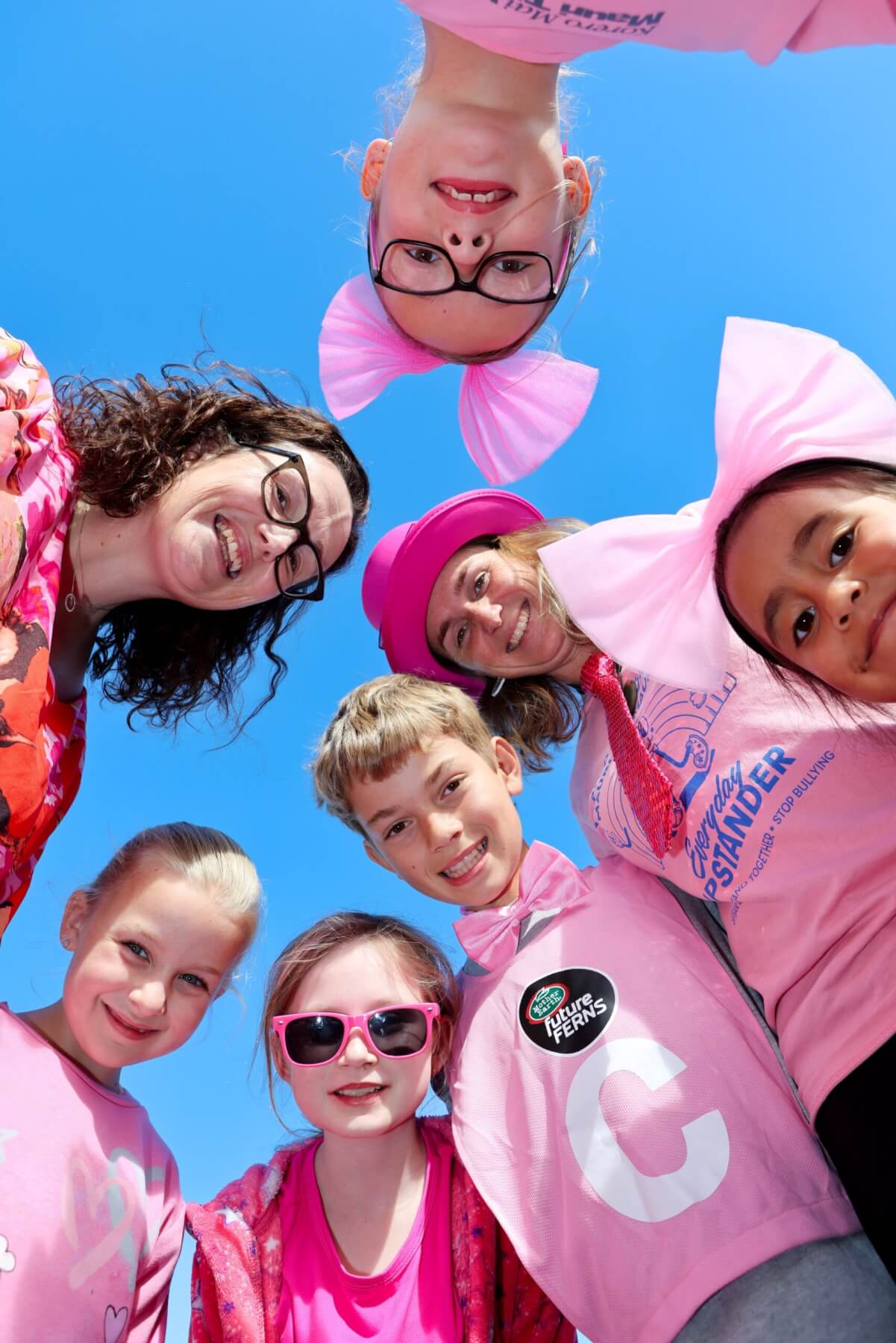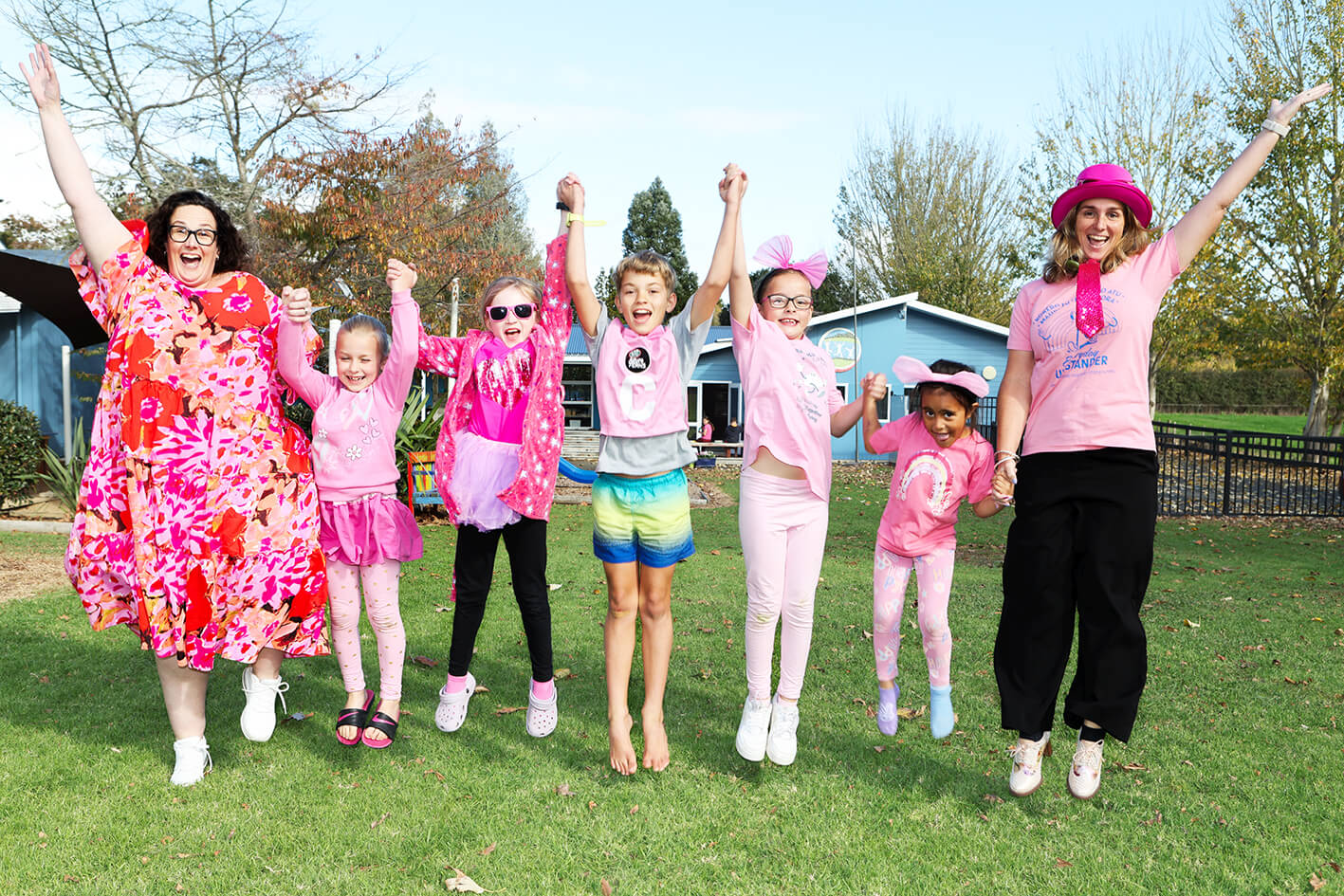
Good vibes on Pink Shirt Day
Karāpiro School students joined children all over the country last Friday to celebrate Pink Shirt Day.

Celebrating Pink Shirt Day at Karāpiro School on Friday were (clockwise from top) Alice Daly, Atarangi McClure, principal Alana Thompson, Levi Hughes, Zoe Nelson, Ruby Seath-Boyte and junior teacher Emma Page. Photo: Steph Bell-Jenkins
Run by the Mental Health Foundation of New Zealand since 2012, the day focuses on creating a community where all people feel safe, valued and respected, regardless of gender identity, sexual orientation, age, ability, religion or cultural background.
That’s something principal Alana Thompson and her staff are working to achieve every day.
“A student spends 15,000 hours at school between primary school and high school, so ensuring that that time is happy and safe is a key priority,” she said.
“We work with our children in the weeks leading up to Pink Shirt Day to ensure they understand the kaupapa or the message behind the day, and we do lots of activities around building positive mental health in our students.”
Senior student Levi Hughes raided the school PE box to find a pink Future Ferns netball bib and borrowed a bowtie from Mrs Thompson. He said it had been fun seeing everyone dressed up.
His classmate Zoe Nelson, who dug up a pink hair clip, dressing gown, tutu, socks, t-shirt and sunglasses to wear, said she had learnt bullying should not be allowed.
Thompson was delighted” to see every child at the school “dripping in pink” on Friday.
“We’ve had some great conversations with households that only have boys who found it tricky to find enough things today, but we’ve been creative and they’ve all got behind it,” she said.
Students brought gold coins to donate to the Mental Health Foundation.

Good vibes on Pink Shirt Day with (from left) junior teacher Emma Page, Ruby Seath-Boyte, Zoe Nelson, Levi Hughes, Alice Daly, Atarangi McClure and principal Alana Thompson. Photo: Steph Bell-Jenkins
Two days before Pink Shirt Day a Unicef study, Report Card 19: Fragile Grains – Child Wellbeing at Risk in an Unpredictable World, ranked New Zealand lowest out of 36 OECD and EU countries for mental wellbeing and fourth lowest for child wellbeing. New Zealand also had the second highest percentage of bullied children.
“Those statistics are pretty grim,” Thompson said.
“It’s crucial that we prioritise mental health education within our schools and ensure children have a safe and happy place to be educated, where they feel part of a community and where they are able to be their true and authentic selves.”
Unicef Aotearoa CEO Michelle Sharp said the data should be a wake-up call and the upcoming budget was an opportunity for the government to create positive change.
“Too many children in Aotearoa are missing out on their childhood,” she said.
“We’re calling on the government to direct funding towards addressing these problems and to shift the dial, so New Zealand is not ranked so alarmingly close to the bottom of the table when it comes to child wellbeing.
“The government can act now, and act quickly to make positive impacts if it chooses to.”








